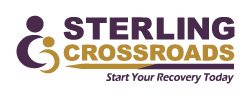Prescription drug addiction isn’t something that happens overnight. It often starts innocently enough—with a legitimate prescription for pain, chronic illness, or mental health concerns. Unfortunately, a slow, gradual build-up can lead to dependency. For many people, the lines blur between needing medication for medical reasons and taking it just to feel “normal.” This challenge doesn’t discriminate. It can impact anyone, regardless of age, income, or background. Learning to recognize prescription drug addiction symptoms can help you seek professional treatment for yourself or a loved one at the first sign of trouble, such as changes in behavior or withdrawal from regular activities.
If you or a loved one is caught in the cycle of addiction, reach out to Sterling Crossroads in Mount Sterling. We offer a comprehensive outpatient prescription drug addiction treatment in Kentucky. Contact our compassionate team today and get started on the road to recovery.
Recognizing the Signs of Prescription Drug Addiction
Addiction to prescription drugs often begins quietly, making it hard to spot until it’s already taken hold. The earlier you recognize the signs in yourself or a loved one, the faster you can seek help.
Here are some common signs and symptoms to watch for:
Physical Symptoms
- Developing a higher tolerance (needing increasingly larger doses to feel the same effects).
- Noticeable withdrawal symptoms when the medication is stopped, such as nausea, shaking, headaches, or sweating.
- Changes in energy levels, including extreme drowsiness or hyperactivity.
- Unexplained weight changes, often due to appetite suppression or overeating.
Behavioral Symptoms
- Doctor shopping (visiting multiple doctors to obtain prescriptions).
- Frequent excuses for refilling prescriptions early, claiming they were lost or stolen.
- Secretive behavior, such as hiding pills or avoiding conversations about their medication use.
- Loss of interest in hobbies, relationships, or responsibilities.
Psychological Symptoms
- Mood swings, ranging from euphoria to irritability or depression.
- Anxiety or paranoia, which may worsen without the medication.
- Memory or concentration issues, feeling foggy or disconnected.
- Intense cravings for the drug.
If you or someone you know exhibits any combination of these symptoms, it’s essential to take action. Addiction can often spiral quickly, but early intervention can make a significant difference.
Commonly Abused Prescription Drugs and Their Effects
The misuse of prescription medications isn’t always intentional, but over time, dependency can develop. Some of the most commonly abused medications include:
1. Opioids (Painkillers)
These include drugs like oxycodone (OxyContin), hydrocodone (Vicodin), and morphine. Opioids are often prescribed to manage moderate to severe pain, but they have a high potential for addiction.
- Effects: Pain relief, euphoria, drowsiness.
- Risks: Respiratory depression, physical dependency, and an increased risk of overdose.
2. Benzodiazepines (Anti-Anxiety Medications)
Examples include Xanax, Valium, and Ativan. These are often used to treat anxiety, panic disorders, or insomnia.
- Effects: Calmness, muscle relaxation, and sedation.
- Risks: Severe withdrawal symptoms, emotional dependence, and impaired cognitive function.
3. Stimulants (ADHD Medications)
Medications like Adderall and Ritalin are commonly prescribed for attention-deficit/hyperactivity disorder (ADHD).
- Effects: Increased focus, energy, and euphoria.
- Risks: Insomnia, aggression, heightened heart rate, and risk of heart issues.
4. Sleep Medications
Drugs like Ambien and Lunesta are designed to help people sleep, but they can easily be misused.
- Effects: Sedation and relaxation.
- Risks: Dependence to fall or stay asleep, confusion, and memory impairments.
Each drug comes with its own set of challenges, and breaking free from dependency often requires professional guidance. Self-managing withdrawal at home can be dangerous or even life-threatening, underscoring the importance of professional care.
The Importance of Professional Drug Addiction Treatment
Breaking free from prescription drug addiction isn’t a simple process. It requires a comprehensive approach that addresses both the addiction and the underlying reasons behind it. Professional treatment centers are equipped to provide this needed care, with a variety of treatment options tailored to individuals.
Here’s why professional treatment is essential:
1. Personalized Plans for Every Individual
No two people experience addiction in precisely the same way. A one-size-fits-all approach won’t work. At Sterling Crossroads, every patient receives a customized treatment plan designed around their unique needs, personal circumstances, and recovery goals.
2. Professional Medication-Assisted Treatment
Withdrawal symptoms can be physically and emotionally grueling. Medication-assisted treatment can help alleviate these symptoms and provide support during the initial stages of recovery. Our team of medical professionals will work with you to determine the most effective medication-assisted treatment plan for your individual needs.
3. Therapeutic Care
Therapy plays a vital role in addiction recovery. Sterling Crossroads offers various therapeutic care options, including:
- Psychotherapy
- Group therapy
- Life skills training
- Relapse prevention
- Parenting assessments and classes
- Anger management assessments and classes
With a combination of therapeutic options tailored to the patient’s particular needs, we can help address the root causes of addiction so that you can restore relationships, rebuild trust, and regain a life of enhanced well-being.
Seek Help Today at Sterling Crossroads in Mount Sterling, KY
If you or someone you love is struggling with prescription drug addiction, there’s no need to face this alone. Sterling Crossroads in Mount Sterling, KY, is here to help you every step of the way. Our compassionate team offers supportive, evidence-based care tailored to meet your needs.
Contact 859.274.4422 or reach out online to begin your journey to recovery today. We are committed to helping individuals and, in turn, their families and communities. Don’t wait to seek help; call today.





